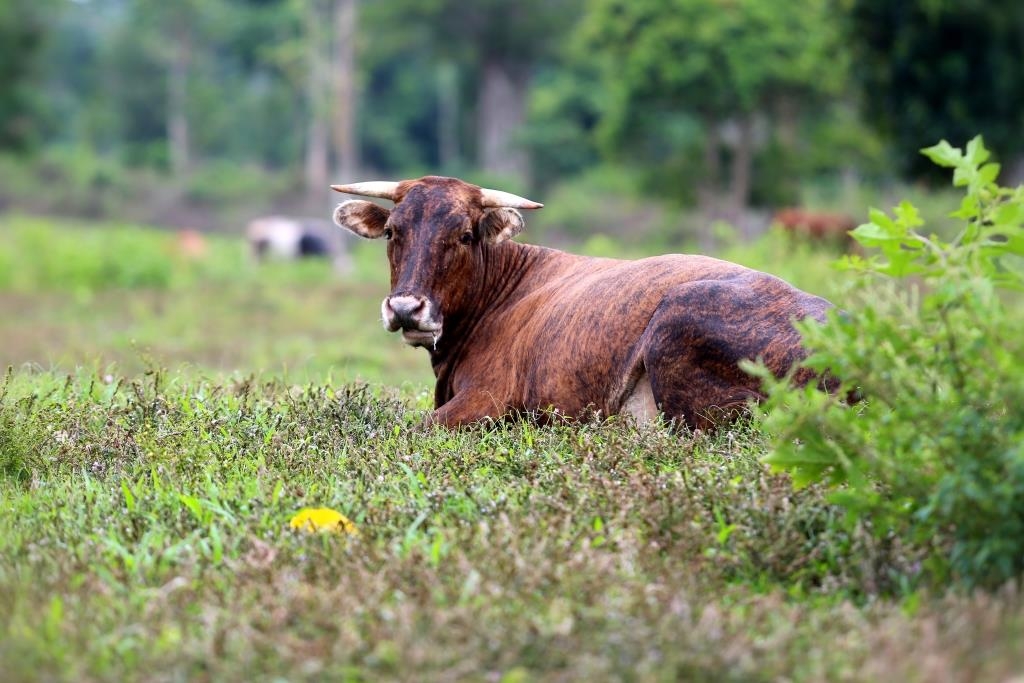
To strengthen the Official Veterinary Services (OVS) of OIRSA member countries through the development of control and eradication programmes for bovine brucellosis, bovine tuberculosis and Newcastle disease, and to incorporate into domestic legislation technical provisions that allow for the application of scientific criteria recognised internationally by the World Organisation for Animal Health (OIE).
A result story on the project is available here.
In the Central American region, trade in animals and animal products is not recognized by United States Department of Agriculture (USDA) or Mexican and European health authority certification due to a lack of regulation and the absence of specific health programmes for disease control. In the OIRSA member countries, this responsibility falls structurally to the Ministries or Secretariats of Agriculture and Livestock, and operatively to the agricultural health services, which for the most part include veterinary services.
It should be noted that although basic animal health laws provide for aspects such as the control of imports, exports and medicines, and the prevention and control of diseases, there is very little secondary legislation (regulations and mandatory standards) that specifically regulates health programmes. There are also very few programmes aimed at controlling and eradicating specific diseases, and most of those that do exist have no budget or resources and are not in line with OIE standards.
The OIE PVS evaluation conducted in Central American countries in recent years highlights the lack or complete absence of specific disease control and eradication programmes. Generally speaking, the field activities carried out by veterinary services have no specific objectives and are limited to monitoring enzootic diseases and responding to emergency situations.
OIRSA, as a regional international organization specializing in agricultural health, proposed harmonizing the legal framework with OIE guidelines for the establishment of disease control and eradication programmes. For this reason, project STDF/PG/358 focused on diseases which are significant in terms of public health, animal health and international trade and which were prioritized in agreement with the authorities of the beneficiary countries (namely bovine brucellosis, bovine tuberculosis and Newcastle disease).
The project made it possible to establish a model health measure based on proper legislation, which could be developed and made official in each of the member countries and which supported the implementation of control and eradication programmes.
The bodies concerned have the appropriate capacity to develop the legal technical instruments needed to strengthen national veterinary services
The project covered the organization of two important training events, the first a regional seminar on veterinary legislation, and the second a training seminar for experts on veterinary legislation. Participants included officials from the public sector and from international agency partners (FAO and OIE).
The aim of the first event was to train OIRSA member country entities involved in the development of secondary animal health legislation to prepare the legal technical instruments needed to strengthen national veterinary services. The second seminar trained and certified experts from OIRSA member countries, who constitute a focal point for the handling of veterinary legislation issues and can support the OIE in conducting missions in this area.
Existing legal technical instruments are clearly identified and principal regulatory needs in relation to each of the selected diseases have been established
During the implementation of the project, the current animal health regulations of each participant country were compiled, and a comparative analysis with international standards was conducted.
During the process, missions were conducted to each of the beneficiary countries to discuss the project with health authorities, legal advisors and the private sector. This made it possible to hear the opinions and suggestions of each party concerned, at both national and regional level.
In addition, national workshops were held in countries where, during the regulation analysis phase, major difficulties had been detected in the national standard drafting and implementation process (El Salvador, Honduras, Guatemala, and the Dominican Republic). Knowledge was enhanced and common criteria were established among veterinarians, producers and legal representatives at central and regional levels in each country, with a view to strengthening procedures for drafting national standards, and potential mechanisms for communicating national standards from the central to the regional level.
For each selected disease, legal technical instruments have been developed with a view to implementing national legal frameworks
The project's main outcomes included the drafting of proposals for secondary legislation on selected diseases, in accordance with their relevant legal framework, and the submission of the proposals in each country to the private sectors related to each animal species (trade unions, associations, professional associations, etc.). The regional proposals for secondary legislation were sent to the Secretariat for Central American Economic Integration (SIECA), with the suggestion that, through the Council of Ministers for Central American Economic Integration (COMIECO) and with the support of OIRSA, work be carried out to adapt them to the relevant formats with a view to their subsequent approval and implementation. The 46 texts resulting from the project were eventually edited, printed and circulated.
Promote the active participation of international cooperation agencies
Promote the more active participation of international cooperation agencies in the revision of the resulting texts, with a view to obtaining the technical opinion of all the parties concerned.
Make greater use of electronic resources
Consider using electronic media to hold meetings more frequently and reduce costs.
Promote production sector participation at national level
Promote the participation of production sector representatives from all areas of the country and not just from national or central bodies.